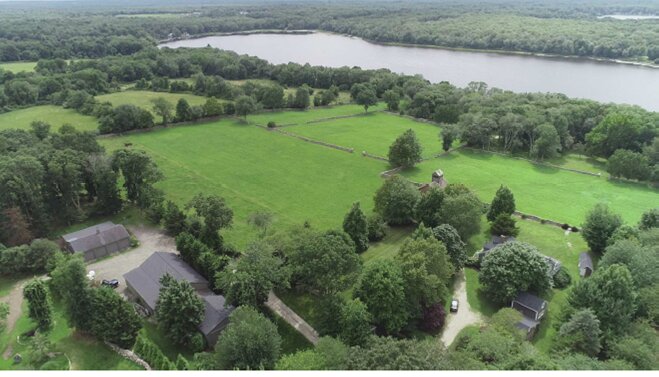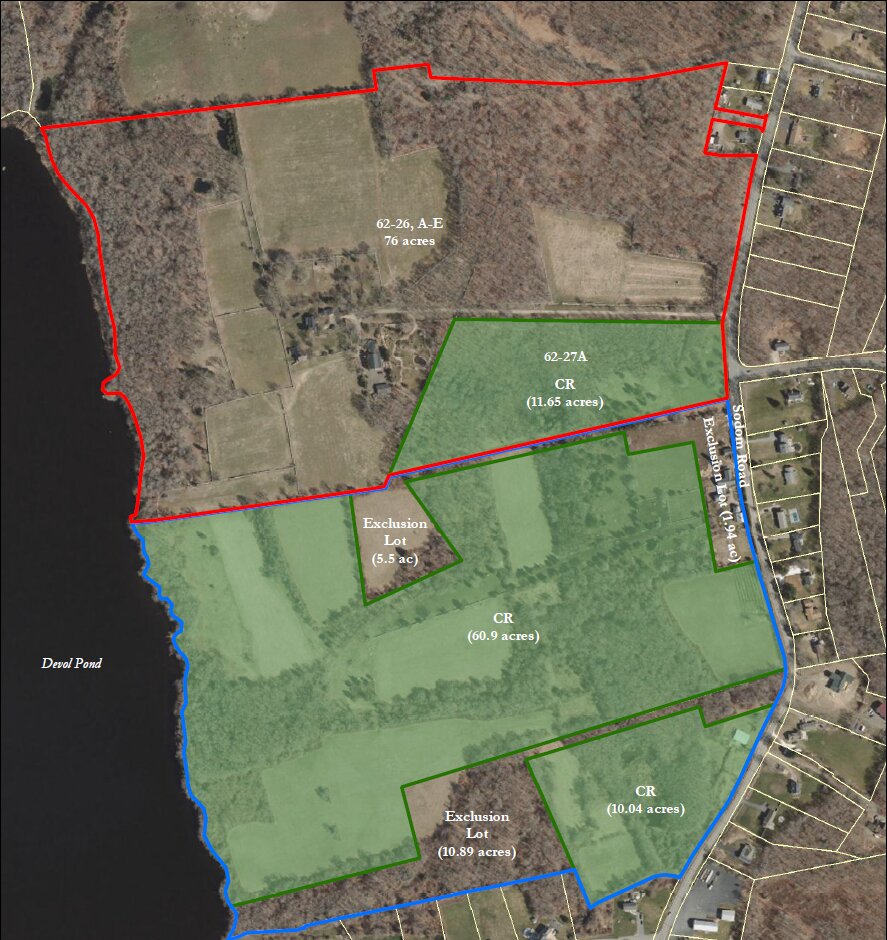Land Trust secures rare gift for Westport
Owner of 73-acre Otter Rock Farm donates conservation restriction to Westport Land Conservation Trust
While skyrocketing land prices threaten open farmland across the South Coast, the Westport Land Conservation Trust recently received a valuable and generous gift — a donated conservation …
This item is available in full to subscribers.
Please log in to continue |
Register to post eventsIf you'd like to post an event to our calendar, you can create a free account by clicking here. Note that free accounts do not have access to our subscriber-only content. |
Day pass subscribers
Are you a day pass subscriber who needs to log in? Click here to continue.
Land Trust secures rare gift for Westport
Owner of 73-acre Otter Rock Farm donates conservation restriction to Westport Land Conservation Trust
While skyrocketing land prices threaten open farmland across the South Coast, the Westport Land Conservation Trust recently received a valuable and generous gift — a donated conservation restriction that will ensure that 73 acres of prime land on Devol Pond will remain open forever.
“These days it’s pretty unique for a landowner to donate a restriction of this size and scope and conservation quality,” Ross Moran, the trust’s executive director, said Wednesday. “We’re very grateful.”
The property, known informally as Otter Rock Farm, fronts Sodom Road and having been farmed since 1800, is one of the most well-preserved and historically significant farm complexes left in Westport. It has been owned by its current owner since 1982, and though her name is available in town records, Moran asked that he not identify her due to her wish to remain anonymous.
While many owners have sold conservation restrictions to the trust over the years, ensuring that the land will be kept in its current state, receiving one as a gift is rare, Moran said — more so in a property like Otter Rock.
The land lies on the eastern shore of Devol Pond and was once part of the large Devol Farm, which covered hundreds of acres before being broken up into smaller parcels. The farm is contiguous with another conserved farm to the south, and is considered to be one of the finest early farms left in Westport.
David Palmer is the property manager, and for the past 12 years has spent much of his time caring for and improving the property and its many stone walls. He said he always enjoys talking to people who see the farm for the first time — “they are totally in awe when they see how well the property” has been reserved.
“You can tell that this property was very loved and cared for for a good number of years.”
The property is prized from an agricultural perspective, as well.
Ross said it has great attributes apart from its historical value, including the quality of its soils and the variety of its lands. Of its 73 total acres, about half — 35 acres — have what the USGA considers ‘prime and statewide soils,’ with another 15 acres of ‘locally important soils.’ Across its acres are wetlands, freshwater resources, grasslands and forest.
Currently, feed for other farms is produced on the property and a portion of it is leased to a livestock farmer who sells beef locally.
“It’s also a cultural resource,” Moran said, with outstanding early stone buildings that haven’t changed much in two centuries.
Palmer, whose cousin tended to the farm for 20 years before him, said he’s thrilled to see Otter Rock placed in a conservation restriction — it’s been the owner’s dream to preserve it since purchasing the property 41 years ago, he said.
“It’s a very unique property and I’m extremely happy that it’s being preserved.”









